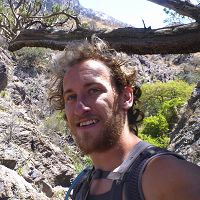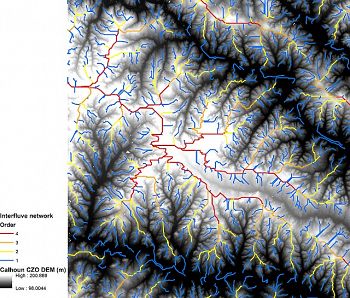Brecheisen et al., 2015
Ordering interfluves: a simple proposal for understanding critical zone evolution and function
Brecheisen, Z.; Richter, D.; Moon, S.; Halpin, P. (2015)
American Geophysical Union Fall Meeting, December 2015, San Francisco, CA
-
Calhoun, GRAD STUDENT
-
Calhoun, INVESTIGATOR
Abstract
A geomorphic interfluve ordering system, a reciprocal to the Hortonian-Strahler stream network order, is envisioned at the Calhoun Critical Zone Observatory (CCZO) in the South Carolina Piedmont. In this system the narrowest and most highly dissected interfluves (gentle ridges and hilltops) are 1st order and increase in rank dendritically through interfluve branching and broadening. Interfluve order attends to the structure, function, and management of residual porous-solid systems in the transport of water, solutes, and eroded solids in our deeply weathered (>30m soil/saprolite) critical zone. Recently generated geospatial data regarding the interactions of geomorphology, human land use, and forest ecology further strengthen the utility of this system. These upland networks and corresponding “land-sheds” have potential in linking recent work in the fields of geophysics and geomorphology regarding bedrock weathering front dynamics.
Patterns of bedrock weathering depth, landcover & land-use change, and soil erosion are considered as they correspond to interfluve order. With LiDAR mapping and the burgeoning development and utilization of geophysical techniques and models enabling new quantitative research of critical zone landscape structure and function, many physiographic regions could benefit from a system that delineates and orders interfluve networks.
Citation
Brecheisen, Z.; Richter, D.; Moon, S.; Halpin, P. (2015): Ordering interfluves: a simple proposal for understanding critical zone evolution and function. American Geophysical Union Fall Meeting, December 2015, San Francisco, CA.
 This Paper/Book acknowledges NSF CZO grant support.
This Paper/Book acknowledges NSF CZO grant support.
Explore Further



